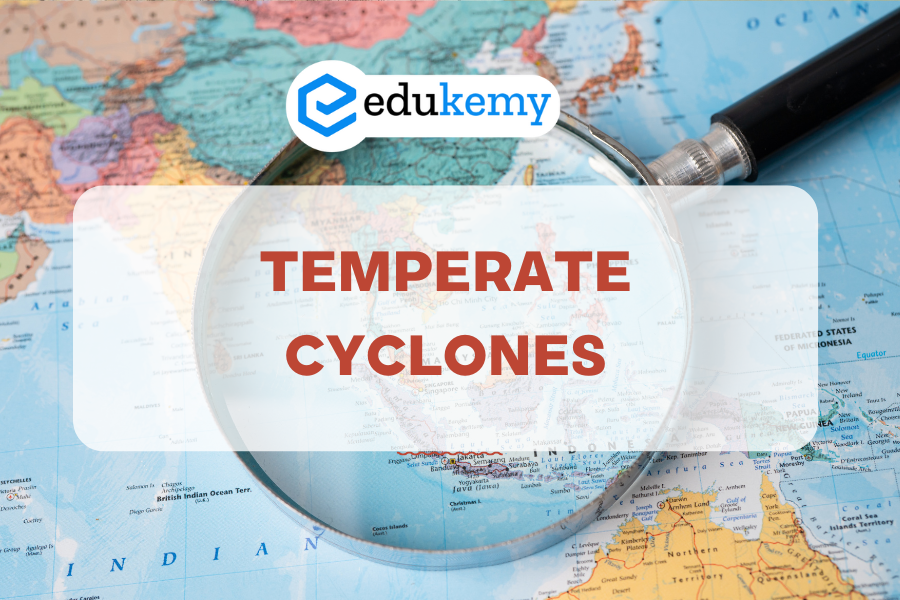Discover the essentials of Temperate Cyclones—their formation, structure, and impacts. Perfect guide for UPSC Geography optional students.

Contents
Introduction
Temperate cyclones, also known as extratropical or mid-latitude cyclones, are a critical component of global weather systems, particularly in the temperate zones between 30° and 60° latitude. These cyclones are vital to understand for Geography optional students preparing for exams like UPSC due to their influence on climate patterns, weather conditions, and human activity. Unlike tropical cyclones, which form in warm waters and exhibit a more uniform structure, temperate cyclones are complex systems driven by the interaction of contrasting air masses in the mid-latitudes.
Check Shabbir Sir’s class notes
Click here to download
Differences Between Temperate and Tropical Cyclones
| Aspect | Temperate Cyclones | Tropical Cyclones |
| Latitude | 30° – 60° | 5° – 20° |
| Formation | Due to frontal systems | Due to warm ocean water |
| Air Mass Interaction | Cold and warm air masses | Only warm, humid air |
| Wind Speed | Generally lower, 30-60 km/h | Can exceed 120 km/h |
| Size | Larger, up to 1,000 km diameter | Smaller, around 100-500 km diameter |
| Weather Patterns | Diverse, with varying fronts | Intense rain, high winds, and storm surge |
Studying Temperate Cyclones for UPSC Geography Optional
When preparing for Geography optional, focus on these key areas for temperate cyclones:
- Formation Mechanisms: Understand cyclogenesis, occlusion, and the role of frontal systems.
- Structure and Stages: Familiarize yourself with the structure, such as warm and cold fronts, and the stages of a cyclone.
- Impact Analysis: Analyze both the positive and negative impacts on weather, climate, and human activity.
- Comparative Study: Be able to contrast temperate cyclones with tropical cyclones, highlighting key differences and similarities.
Conclusion
Temperate cyclones are essential to the study of climatology and atmospheric processes, especially within the field of geography. Their complex formation, dynamic structure, and far-reaching impacts on mid-latitude regions make them crucial for students pursuing Geography as an optional subject in UPSC. A deep understanding of these systems not only prepares students for examinations but also provides insights into the workings of our planet’s weather systems. By focusing on the formation, structure, and impacts of temperate cyclones, students can develop a robust foundation for answering related questions effectively.
To get free counseling/support on UPSC preparation from expert mentors please call 9773890604
- Join Geography Optional Course – Click Here
- Get Geography Hard Copy notes – Click Here

